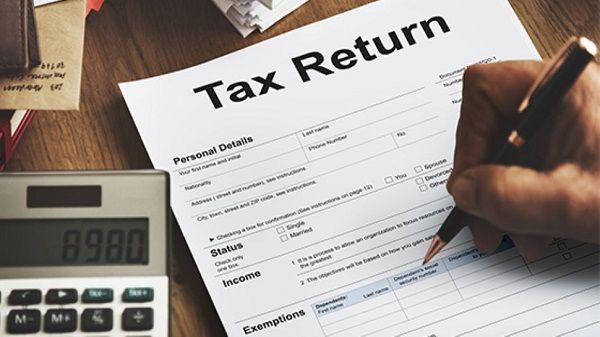Aditya Khemka, Fund Manager, InCred Asset Management, says a possible 200% tariff looms over pharma exports to the US though investors are currently not reacting to the proposed tariff. Pharma companies exporting to the US may face earnings downside. InCred Asset Management avoids US-facing generic companies which may face earnings challenges in the next two years. On the other hand, Khemka likes domestic pharma companies with strong brands are experiencing double-digit growth and are using their cash flow wisely to create more inorganic growth opportunities for themselves. He also likes asset-light hospital companies
What is your take on Divi’s Lab because for today, the stock is in focus on the back of the setback coming in from Novartis and of late, we have seen the stock reacting sharply to that. But it is one of those strong candidates that even after negative news flows continues to trend higher. How does this news impact the earnings and the outlook for the company?
Aditya Khemka: Entresto is a very key product for Divi’s, and will be a substantial part of their earnings. Once Entresto goes generic, some of those earnings will evaporate. But let us not forget Divi’s has done a substantial amount of capex over the last four-five years and that capex probably still has some steam left in terms of monetisation. As and when the incremental capex gets monetised, the earning growth might still not be a challenge for Divi’s.
Having said that, from a valuation standpoint, we are very cautious on stocks like Divi’s where valuations are overstretched compared to their historical averages. These stocks are trading 40-50% higher than their historical average valuation multiples and we will continue to sit out this one. For us the downside seems to be higher than the upside and hence we are not owning the company.
Let us move away from the Divi’s news flow for a bit right now and talk about the tariff implication on the entire pharma space. There’s a 200% tariff possibility even though it is over the next 12 to 18 months. So, how feasible or how realistic is this 200% because it seems too high for tariffs on the entire pharma space? Secondly, what kind of impact do you think it could have on the overall sentiment in the pharma space?
Aditya Khemka: Earlier it was 25% and then it is 200%, I do not think investors at this point are paying any heed to the tariff percentage that the Trump administration is talking about. It remains to be seen if they will at all have any kind of tariffs on the pharmaceutical space. These may be more of an arm-twisting tactic and the Street sees it as a sort of an arm twisting tactic and realistically they may not end up imposing any kind of tariffs.
Having said that, if you look at the pharma companies that export to the US, even if some tariff is imposed, then there is a significant downside to the earnings of these pharma companies and that means higher risks for an investor in the space. We at InCred Asset Management, do not hold any US generic companies or companies that sell to US markets substantially and hence our portfolio is relatively immune to this kind of a situation.
But yes, I agree that earnings are at risk. We do not know what percentage tariffs can come out. It can be 20%, it can be 200%, it can be zero for all we know. But the risk in these stocks have definitely gone up. I have not seen the reward going up.
What are your earning projections because in the last quarter, we have not seen the companies performing that well. There are concerns over the lower contribution from g-Revlimid. The pricing is not that supportive even for the Indian markets. The data suggest that we are still in that low single-digit growth number. What is your own sense with respect to the earnings and what factors could be at play?
Aditya Khemka: For the US generic stocks, earnings for the next two years will be a challenge. Many of these companies have got g-Revlimid, others have got other interesting products that they have launched over the last two years and these products will get incremental competition in 2026 or 2027. Hence, earning growth for the majority of these stocks will be a challenge. We are looking at single-digit CAGR numbers in terms of earnings from here and hence the valuation multiples that these stocks trade do not justify that kind of an earnings growth and we will definitely see some downside in these stocks if the earnings growth is in single digits.
On the broader US generic space, we are very cautious and pessimistic on the outlook. In the domestic pharma space though average growth is in single digit, the good pharma companies, the pharma companies with good brand presence are growing in double digits and using their cash flow judiciously to acquire smaller companies and add inorganic growth on top of it. So, we remain bullish on those companies that are more focused on India, the branded market, and are using their cash flow wisely to create more inorganic growth opportunities for themselves.
What is your view on the diagnostic space? There was some recent news flow that Amazon is now foraying into that quick diagnostic space offering at home services. What impact do you think this will have on the entire diagnostic space?
Aditya Khemka: The Indian diagnostic market is growing at 10% at a market level and then 85% of the diagnostic market is unorganised. So, I would say there is more and enough space for competition to come in. We have already seen Tata 1mg, Reliance Netmeds, come in and do this online discounted pricing model that Amazon will probably try now, but it does not work that well in the diagnostic space or in the healthcare space broadly speaking because healthcare is a matter of trust, matter of presence, matter of brand which cannot be built overnight, which cannot be justified by over pricing.
Diagnostics companies that are format companies that we own, will continue to do well regardless of how many new entrants come in on the online format because the online format one lacks the trust of the patient and the doctor and two, there is more than enough space for each and every player to come and sort of get share from the unorganised players given that only 15% of the market is organised and 85% of the market is unorganised.
Tell us about the overall healthcare and the hospital chains rather because we have seen consolidation in that particular sector. The companies have been announcing their capex and even the stock prices and the investors were getting rewarded because of that. Do you believe that with the kind of capex, the growth projections, and the growth on ground, the valuations are justified? What is your overall sense of the hospital chain sector?
Aditya Khemka: It has to be very stock specific. Max Healthcare trades at 100 times trailing cash flow. Apollo is trading at 60 times trailing cash flow. Whereas Healthcare Global, is 24-25 times trailing cash flow. So, I cannot really make a statement on the entire hospital space because each individual hospital stock has a different valuation metric and is at a different spectrum altogether in terms of those valuation metrics.
I would rather summarise that we are very gung-ho on the hospital space. India has a lot of scope for hospitals to grow, especially when they follow the asset light model where they lease the land and building and they do not really own the land and building. So, there is a lot of space to grow. But there are certain hospital stocks that are very expensive and may not make money for investors in the medium term. Then, there are also extremely cheap hospital stocks which can make a substantial amount of money for investors over the next three to four years.
What is your take on Divi’s Lab because for today, the stock is in focus on the back of the setback coming in from Novartis and of late, we have seen the stock reacting sharply to that. But it is one of those strong candidates that even after negative news flows continues to trend higher. How does this news impact the earnings and the outlook for the company?
Aditya Khemka: Entresto is a very key product for Divi’s, and will be a substantial part of their earnings. Once Entresto goes generic, some of those earnings will evaporate. But let us not forget Divi’s has done a substantial amount of capex over the last four-five years and that capex probably still has some steam left in terms of monetisation. As and when the incremental capex gets monetised, the earning growth might still not be a challenge for Divi’s.
Having said that, from a valuation standpoint, we are very cautious on stocks like Divi’s where valuations are overstretched compared to their historical averages. These stocks are trading 40-50% higher than their historical average valuation multiples and we will continue to sit out this one. For us the downside seems to be higher than the upside and hence we are not owning the company.
Let us move away from the Divi’s news flow for a bit right now and talk about the tariff implication on the entire pharma space. There’s a 200% tariff possibility even though it is over the next 12 to 18 months. So, how feasible or how realistic is this 200% because it seems too high for tariffs on the entire pharma space? Secondly, what kind of impact do you think it could have on the overall sentiment in the pharma space?
Aditya Khemka: Earlier it was 25% and then it is 200%, I do not think investors at this point are paying any heed to the tariff percentage that the Trump administration is talking about. It remains to be seen if they will at all have any kind of tariffs on the pharmaceutical space. These may be more of an arm-twisting tactic and the Street sees it as a sort of an arm twisting tactic and realistically they may not end up imposing any kind of tariffs.
Having said that, if you look at the pharma companies that export to the US, even if some tariff is imposed, then there is a significant downside to the earnings of these pharma companies and that means higher risks for an investor in the space. We at InCred Asset Management, do not hold any US generic companies or companies that sell to US markets substantially and hence our portfolio is relatively immune to this kind of a situation.
But yes, I agree that earnings are at risk. We do not know what percentage tariffs can come out. It can be 20%, it can be 200%, it can be zero for all we know. But the risk in these stocks have definitely gone up. I have not seen the reward going up.
What are your earning projections because in the last quarter, we have not seen the companies performing that well. There are concerns over the lower contribution from g-Revlimid. The pricing is not that supportive even for the Indian markets. The data suggest that we are still in that low single-digit growth number. What is your own sense with respect to the earnings and what factors could be at play?
Aditya Khemka: For the US generic stocks, earnings for the next two years will be a challenge. Many of these companies have got g-Revlimid, others have got other interesting products that they have launched over the last two years and these products will get incremental competition in 2026 or 2027. Hence, earning growth for the majority of these stocks will be a challenge. We are looking at single-digit CAGR numbers in terms of earnings from here and hence the valuation multiples that these stocks trade do not justify that kind of an earnings growth and we will definitely see some downside in these stocks if the earnings growth is in single digits.
On the broader US generic space, we are very cautious and pessimistic on the outlook. In the domestic pharma space though average growth is in single digit, the good pharma companies, the pharma companies with good brand presence are growing in double digits and using their cash flow judiciously to acquire smaller companies and add inorganic growth on top of it. So, we remain bullish on those companies that are more focused on India, the branded market, and are using their cash flow wisely to create more inorganic growth opportunities for themselves.
What is your view on the diagnostic space? There was some recent news flow that Amazon is now foraying into that quick diagnostic space offering at home services. What impact do you think this will have on the entire diagnostic space?
Aditya Khemka: The Indian diagnostic market is growing at 10% at a market level and then 85% of the diagnostic market is unorganised. So, I would say there is more and enough space for competition to come in. We have already seen Tata 1mg, Reliance Netmeds, come in and do this online discounted pricing model that Amazon will probably try now, but it does not work that well in the diagnostic space or in the healthcare space broadly speaking because healthcare is a matter of trust, matter of presence, matter of brand which cannot be built overnight, which cannot be justified by over pricing.
Diagnostics companies that are format companies that we own, will continue to do well regardless of how many new entrants come in on the online format because the online format one lacks the trust of the patient and the doctor and two, there is more than enough space for each and every player to come and sort of get share from the unorganised players given that only 15% of the market is organised and 85% of the market is unorganised.
Tell us about the overall healthcare and the hospital chains rather because we have seen consolidation in that particular sector. The companies have been announcing their capex and even the stock prices and the investors were getting rewarded because of that. Do you believe that with the kind of capex, the growth projections, and the growth on ground, the valuations are justified? What is your overall sense of the hospital chain sector?
Aditya Khemka: It has to be very stock specific. Max Healthcare trades at 100 times trailing cash flow. Apollo is trading at 60 times trailing cash flow. Whereas Healthcare Global, is 24-25 times trailing cash flow. So, I cannot really make a statement on the entire hospital space because each individual hospital stock has a different valuation metric and is at a different spectrum altogether in terms of those valuation metrics.
I would rather summarise that we are very gung-ho on the hospital space. India has a lot of scope for hospitals to grow, especially when they follow the asset light model where they lease the land and building and they do not really own the land and building. So, there is a lot of space to grow. But there are certain hospital stocks that are very expensive and may not make money for investors in the medium term. Then, there are also extremely cheap hospital stocks which can make a substantial amount of money for investors over the next three to four years.





